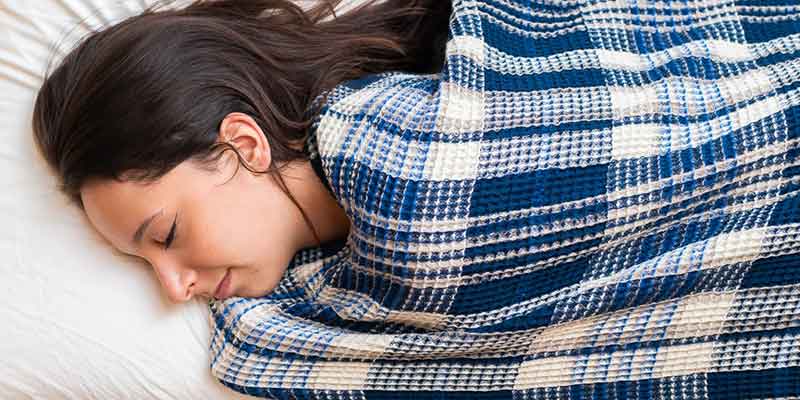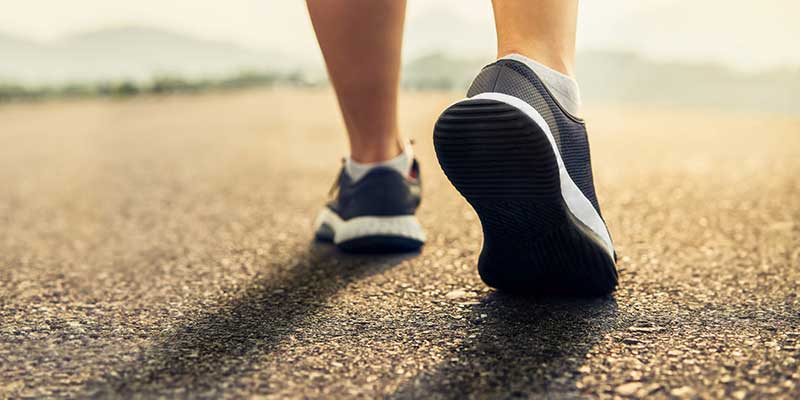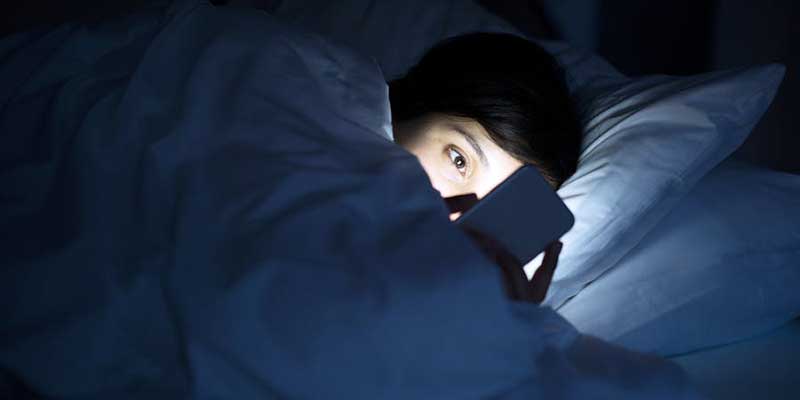
So if you struggle to get the sleep you need, you’re not alone. According to the American Sleep Association, almost a third of adults don’t get the recommended 7+ hours of sleep every night… and sleep quality is at an all time low.
You can turn to pills to alter your brain chemistry and artificially force your body to sleep, but that can be habit-forming and have profound effects on brain function.
Bottom line, nothing measures up to the restorative nature of good, natural sleep.
Here’s a list of proven ways to restore your sleep health:
1. No Caffeine After Noon

Everyone loves their cup of ‘joe,’ but did you know that caffeine can stay in your system up to 12 hours? That’s much longer than most people think. Caffeine stimulates your brain and nervous system, which can affect your ability to get to sleep, cause you to wake up more often, and shorten your ‘deep sleep’ cycles.
As tempting as it may be, skip that afternoon coffee, tea or soda (or go with decaf).
2. Upgrade Your Pillowcase
Ahhh, there’s nothing quite like the cool side of your pillow. The problem is, you flip your pillow again and again through the night in endless pursuit of that blissful sensation on your cheek. Meanwhile, all that restlessness and friction from your pillow is wreaking havoc on your sleep, hair and skin.
The benefits of sleeping on a silk pillowcase are proven — cooler sleep, healthier hair, clearer skin and fewer allergies. Sleep experts, hair stylists and dermatologists all swear by silk and the Blissy pillowcase has quickly become a top choice. Made from 22 Momme Mulberry silk (one of the highest quality silks you can buy), Blissy is dreamy-soft and smooth. Learn More
3. Exercise at Least 20 Mins Per Day

Stepping up your physical activity is a great way to improve deep, restorative sleep according to doctors and sleep experts. It doesn’t have to be anything crazy — even something as simple as going for a walk can make a big difference.
Don’t exercise too close to bedtime, though as it can stimulate your body and make it harder to fall asleep. Try to finish any exercise at least two hours before you go to bed so you give yourself a chance to relax.
4. Use an Audio Headband
Our world is more distracting than any other time in history and it doesn’t end when your head hits the pillow. Thoughts swirling, your partner’s snoring, noisy neighbors — sometimes even complete silence is enough to keep you awake. That’s where an audio headband like HoomBand can help.
HoomBand is a headband with integrated ultra-thin earphones, specially designed for comfort in bed. The free Hoom app gets you to sleep fast with science-backed sounds, including over 20 hours of immersive soundscapes, sleep stories and guided meditations created by sleep experts. You can even use HoomBand with your favorite white noise or music app. Learn More
5. Spend More Time Outside

(This can go hand-in-hand with #3 if you do an activity outside.)
Exposure to natural light plays an important part in setting and reinforcing your natural circadian rhythm (sleep/wake cycle). It also helps boost energy levels and mood, so that’s a nice perk as well.
Get outside or open up your blinds right after you wake up. Having natural light exposure will help your body and mind wake up and be ready for the day. If you’re stuck indoors, try to let in as much natural light as possible throughout the day.
6. Use a Metronome Light
“Busy” has become the new normal and with everything we’ve all got going on in our lives it can be really hard to switch off your mind at night. That’s where a metronome light like Dodow can help.
By focusing on Dodow’s mesmerizing rhythmic light, your breathing rate slows, your busy mind quiets down, and you’re quickly lulled into a deep, restful sleep 2.5X faster than other methods. It also retrains your brain to naturally fall asleep on its own again. Learn More
7. Skip the Screen Time

New research shows that blue light exposure from digital screens significantly reduces your brain’s natural production of melatonin, which directly affects your sleep. Avoid using your phone, tablet, computer and watching TV before you hit the sack. I know it’s tough not to scroll your feed or check email one last time before bed, but you’ll thank yourself in the morning.
8. Keep Your Bedroom Cool

Research has shown that the ideal temperature for getting high-quality sleep is lower than you may think. Try to keep your bedroom between 60 and 67 degrees F (16-19 C).
9. Keep the Lights Down if You Need to Get Up
Does this sound familiar? You shuffle your way to the bathroom in the middle of the night and when you hit that light switch, BAM! Suddenly it’s like you’re staring at the sun. Good luck getting back to sleep…
Experts say you should avoid turning on bright lights if you have to get up during the night, as it will shock your system into waking up.
Check out GlowBowl. It turns your toilet into a soothing night light and completely transforms your night time bathroom experience. It’s a funky concept, but really quite brilliant! Trust me — once you try it you’ll wonder how you ever lived without it. Learn More
10. Upgrade Your Mattress
If you wake up with aches and pains, you’re probably sleeping on the wrong mattress and pillow for your body type. Take the time to go to a good mattress store to get fitted for something ideal for you.
I’ve sleep tested a number of mattresses and ended up choosing a Purple Hybrid mattress. I absolutely love it! Compare Mattresses
11. Relieve Neck Tension Before Bed
I have to admit, when I first saw The Neck Hammock I thought “what the heck is THAT thing?”
But then I watched their video…
As someone who’s struggled with sleep-killing neck pain on and off for years, the gentle neck decompression provided by The Neck Hammock looked pretty heavenly — and reviews were good — so I bought one to try.
The Neck Hammock feels awesome! The sensation is hard to describe… it kind of feels like your head is floating while your neck is gently stretched and tension is relieved. For me, a 5–10 minute session before bed is all it takes to kill my neck pain and headaches, and my sleep is divine. Learn More
12. Don’t Take Long Daytime Naps

While short power naps are beneficial, long or irregular napping during the day can negatively affect your sleep. If you have trouble sleeping at night, stop napping or shorten your naps to 30 minutes or less.
Advertising Disclosure: This web page is formatted as an advertorial and is brought to you by ZangDeal.com. Our site is supported by advertising. This page is an advertisement that includes products for sale by ZangDeal and other sites, not a news article. We receive paid compensation for clicks or sales produced from the content found on this page. This compensation may affect which companies and products are displayed, the placement of advertisements, and their order of appearance. These statements have not been evaluated by the Food and Drug Administration. Products featured are not intended to treat, cure, or prevent any disease.
© 2023 – Handcrafted with love by the good folks at ZangDeal.com | Privacy Policy | Terms